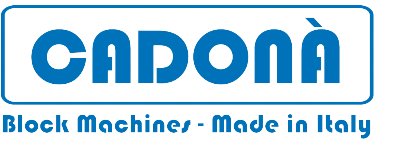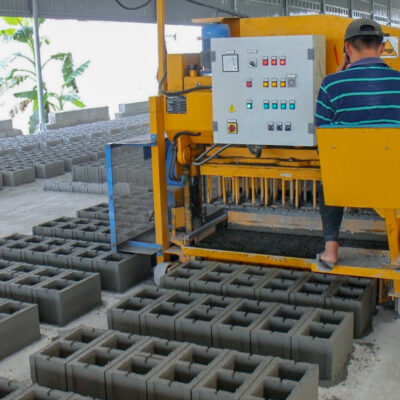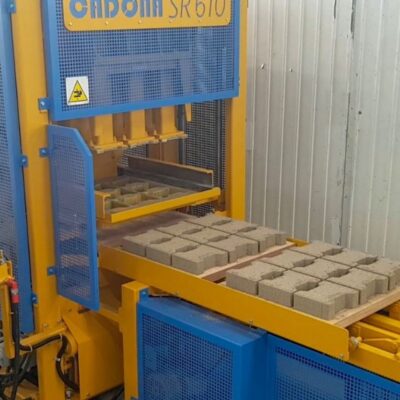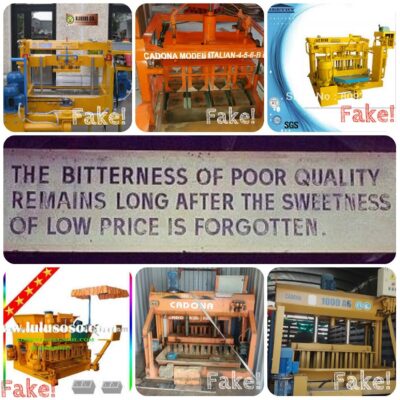Una guida per aiutarti a scegliere la tua blocchiera
Il primo passo è quello di scegliere tra due metodi di produzione di manufatti in cemento. Le macchine stazionarie eccellono nella produzione di pavimentazioni e blocchi, che vengono consegnati su pallet. Offrono versatilità e producono prodotti in cemento di alta qualità. Le macchine per la produzione di blocchi mobili posano i prodotti direttamente sulla pavimentazione in cemento, eliminando la necessità di una struttura di stoccaggio per la stagionatura dei blocchi. Il loro punto di forza è la produttività e l’efficienza.

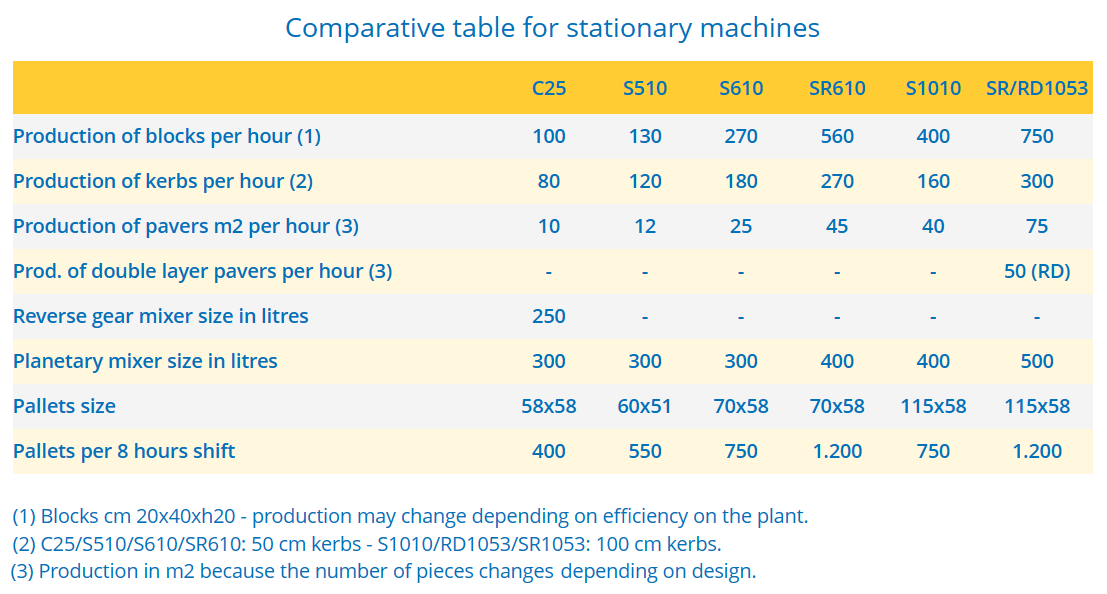
What different concrete elements can be produced with a block machine?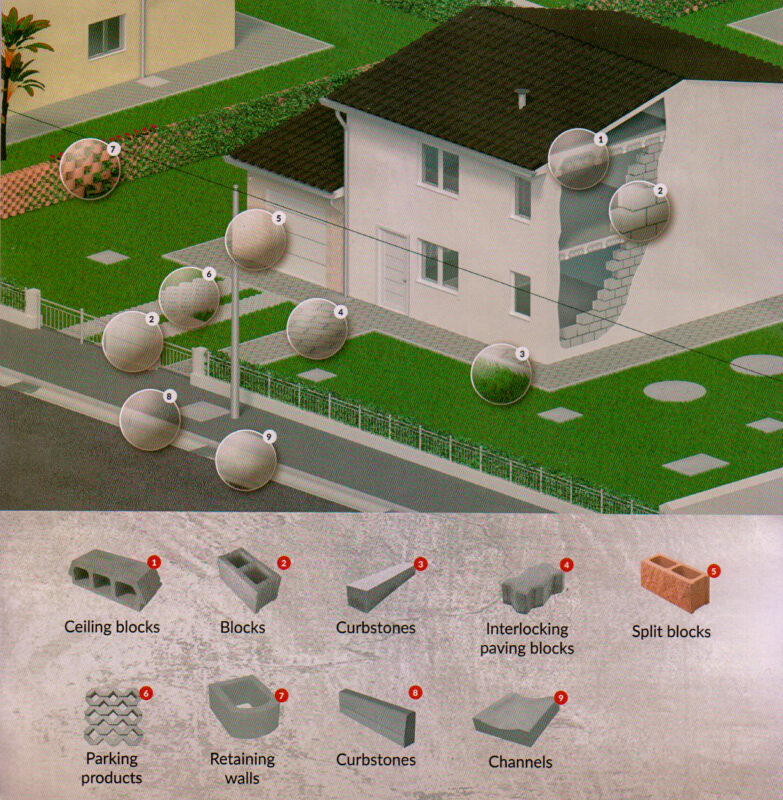
As you can see block machines can make many different products for the construction industry.
But not every machine can make all these products, tell us which ones you need and we’ll help you to make the right choice.
How does a block machine work?
Basically a block machine processes the concrete you feed it and forms it into a shape (block, paver or whatever else within reason and size). How? You throw some concrete into the mould, vibrate it, compress it and then deliver it in its chosen form – either on the floor or on a wood pallet.
What’s the difference between a mobile and a stationary machine?
An egg-laying / mobile blockmachine works on a concrete floor and leaves fresh blocks on the ground; A stationary machine delivers on wood pallets that slide under the mould. Mobile machines are cheaper and faster; Stationary machines are more versatile in production and guarantee better quality. Stationary machines produce interlocking pavers, Mobile machines don’t, with the exception of models M150 and M515.
How will I know which machine matches my needs?
Check our comparative table or write an email to us detailing what products you want to produce and how big a production. We are manufacturers of concrete block machine and we can give you integral solutions for all types of blocks and concrete products factories.
Why don’t you have any completely automatic machine?
It’s a choice we made. Automatic blockmachines are more expensive, more complex and need service by trained technicians – their main advantage is saving on manpower costs: that is why they are the smart choice where manpower is very expensive. Our machines are the ideal compromise between total operational costs, quality and speed of production. Our 70 years’ experience in this field drives our philosophy.
Can you modify your machines to match my requirements?
We are not bound to an in-series production: we are manufacturers and all our block machines can be customised and we are well willing to study modifications and improvements – within the technical limits imposed by the machines. We just need to receive precise indications on the product the client wants to obtain.
Do your blockmachines need a technician from Italy for installation and starting out?
NO, they do not. We strive to avoid it. For the past several decades we have been exporting machines all over the world and made sure they could be transported ready or almost ready to work, so as to make travelling technicians useless and the whole procedure less expensive for clients. We project and manufacture our machines in order for them to be serviced by good local technicians. We also provide clients with photographic manuals and we give all our support.
Can you ship your machines to my Country?
Of course! We manage shipment all over the world to the port of destination indicated by the client.
Can you sell a full factory for masonry blocks?
Yes and no. We manufacture block machines and the moulds that go with them, we do not produce mixers and all other ancillary equipment, but we cooperate with selected Italian companies that produce best quality equipment so that we can supply a full line and and we can suggest the best choices depending on the block machine of your choice and the plant you have in mind.
How do I produce interlocking pavers?
All stationary block machines can produce interlocking pavers, you can even draw your own design and we will produce the mould for you exclusively! There are also 2 small mobile block machines that can do the job, depending on your choice of plant and production goals.
I want to produce cement bricks but you always mention concrete blocks: what is the difference and can your block machines produce what I want?
The same object: 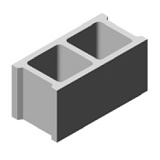 has different names in different Countries, we tend to call it “block”: wall block, sometimes concrete or cement block; some of our clients call it brick or bloc: it’s always the same thing that goes under different names. Our block making machines can produce all sorts of blocks / bricks / blocs, be it hollow or solid, with open or closed bottom: we customise the production on your needs and supply you with the mould you want.
has different names in different Countries, we tend to call it “block”: wall block, sometimes concrete or cement block; some of our clients call it brick or bloc: it’s always the same thing that goes under different names. Our block making machines can produce all sorts of blocks / bricks / blocs, be it hollow or solid, with open or closed bottom: we customise the production on your needs and supply you with the mould you want.
in the same way these 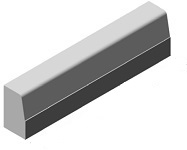 are called: kerbs, curbs, kerbstones, sidewalk borders…we tend to call them kerbs, but however you call them we can manufacture the block machine and the moulds that will give you that concrete “thing” in all the different shapes and measures that are used around the world. We can be your supplier of moulds for block machines: you just need to give your specifications.
are called: kerbs, curbs, kerbstones, sidewalk borders…we tend to call them kerbs, but however you call them we can manufacture the block machine and the moulds that will give you that concrete “thing” in all the different shapes and measures that are used around the world. We can be your supplier of moulds for block machines: you just need to give your specifications.
What type of concrete must I use to make concrete wall blocks?
Do I need different block machines to produce different types of concrete block, cement bricks and interlocking pavers?
It very much depends on the scale of the block industry you are planning. Some block machines can produce all types of blocks and pavers other block machines are more suitable for block manufacturing and less for paver manufacturing. We can help you choose the concrete block manufacturing plant that fits your plan.
How can I feed my machine from the batching plant?
How many moulds come with the block machine that I choose?
We let you choose! we do not have any “standard mould” that goes with all machines because our clients want to choose the moulds they want to buy and customise them so that they fit exactly the demands of their market.
Are your machines manufactured in Italy?
YES! All our machines are produced in our factory in Musile di Piave.
